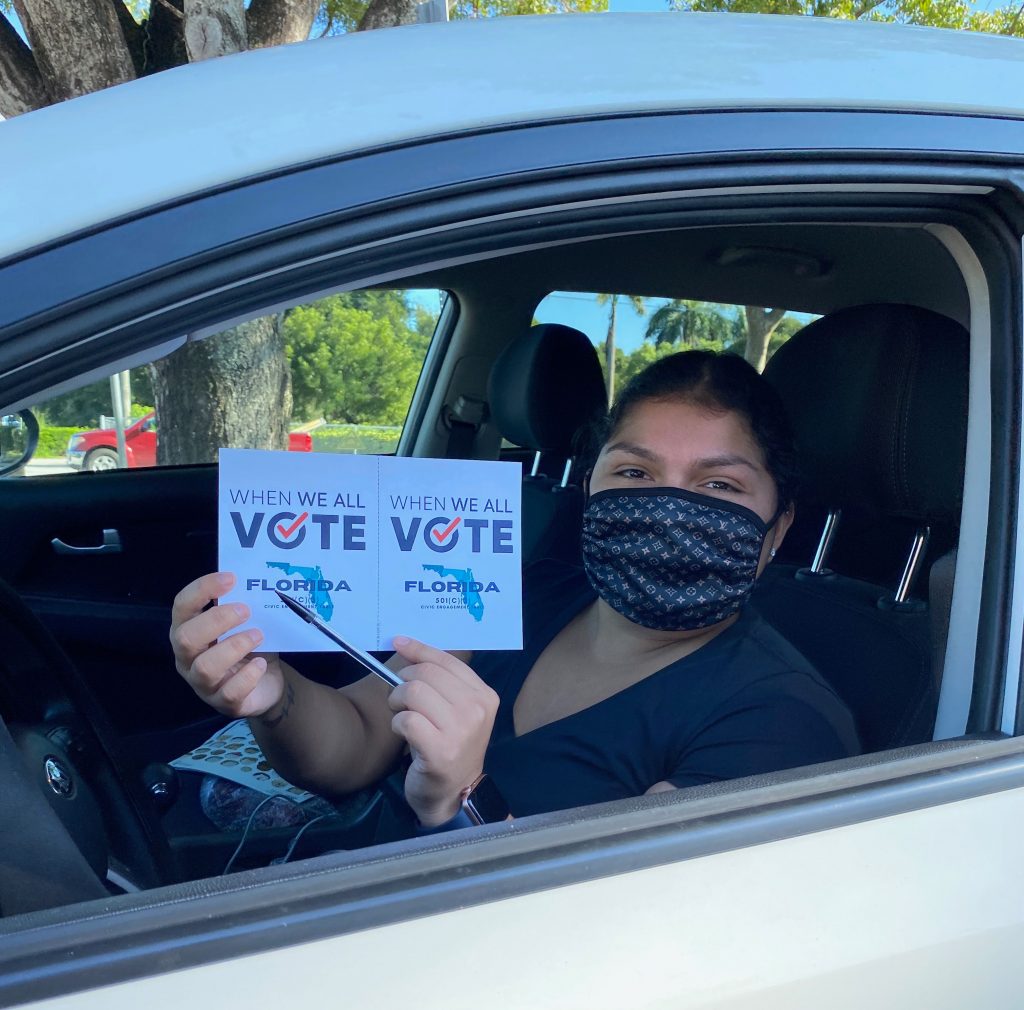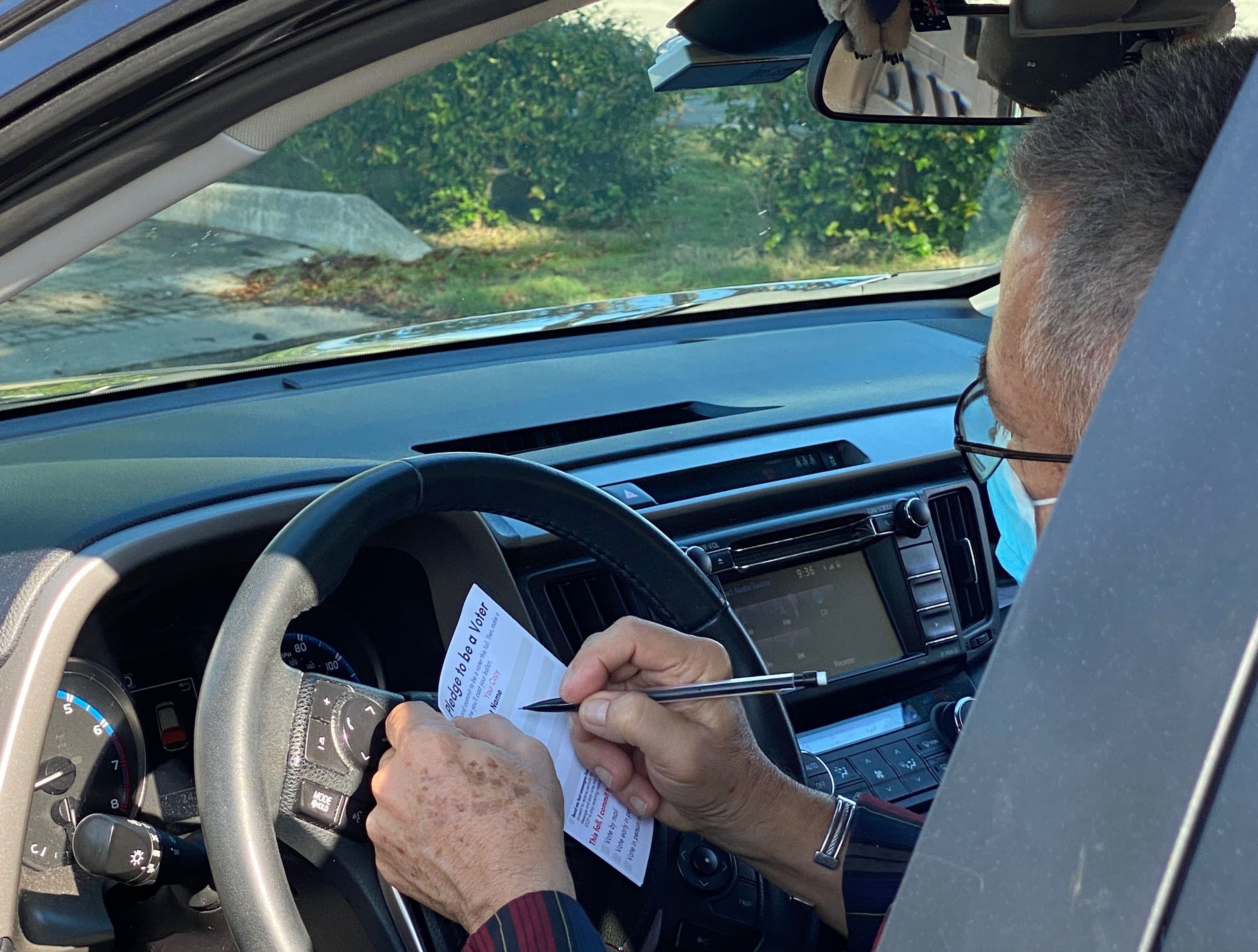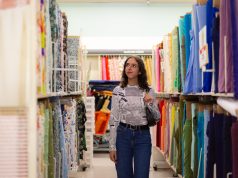Music filled the parking lot of the Joe Celestin Center in Opa-locka on a recent Sunday morning.
Dozens of cars lined up as volunteers wearing masks and gloves handed people boxes with meals, canned food, groceries, children’s books and masks. At the end of the line, tents were set up to help people to register to vote and or to complete census forms.
The Oct. 27 Fuel the Vote event was hosted by Michelle Obama’s “When We All Vote,” a nationwide movement to register people in underserved communities. The group has also been providing lower-income communities with groceries and other essentials during the coronavirus pandemic.
Spokeswoman Ashlynn Profit said the Miami group gave out 2,000 boxes of food and helped feed 3,000 families. About a thousand people also registered to vote.
With the state’s Oct. 5 registration deadline today, organizers said events like this one are crucial.

“A lot of important issues will be decided by this election, both nationally and locally. Everyone needs to vote,” said Sofia Palaez, co-founder of Miami Freedom Project, who helped pass out groceries. “Every neighborhood needs to turn out. Every demographic needs to turn out. Everyone needs to be counted by this, and whatever happens, our voices were heard.”
To organizations like Miami Freedom Project and NextGen Florida, focusing on the youth vote in Florida is critical in this year’s election. Especially since just 30% of 18 to 24-year-olds reported turning out to vote in Florida in 2018.
“Our goal is to engage young people in the electorate and to advocate for issues on behalf of young Americans,” said Justin Atkins, the Florida state director of NextGen America.
He said the organization was committed to making sure young people, particularly minorities, have access to the ballot.
“We understand that young people are naturally apathetic to politics,” said Atkins. “They are tired of the negative discourse, so we address the issues they actually care about.”
While not reaching their goals set at the beginning of the year, Atkins said that the state’s voter registration numbers remained even with previous election cycles, despite the pandemic limiting their presence on college campuses and speaking with students face-to-face.
And NextGen Florida spokesman Abel Iraola said that the organization has increased its online presence on social media and online to reach out to youth voters because of the coronavirus.
He said the group hosted phone and text banking events, specifically reaching out to young voters who were disengaged or were not registered to vote at all, bringing them into the process.
On July 28, National Vote by Mail Day, he said NextGen Florida sent over 871,000 texts and 10,000 phone calls to reach young voters on that day alone.
Iraola said that nearly 800,000 young voters have requested mail-in ballots so far in Florida.

He said the organization plans to host online seminars in October regarding misinformation as well as how to properly fill out and deliver mail-in ballots.
As the deadline date approaches, the organization is making a last push to remind students to register to vote or to update their information before it is too late.
He cited a recent Tufts University study where Florida ranked as the third most important state in terms of the impact of the youth vote.
According to Iraola, South Florida will be the deciding factor.
There are nearly 1 million voters between the ages of 18 and 35 in Miami-Dade, Broward, and Palm Beach counties. He said the youth voter turnout in South Florida could decide which candidate wins the state.
“The youth vote can have an incredible influence,” he said. “The youth vote can decide who wins Florida. And who wins Florida decides who wins the national election.”
Editor’s Note: This article has been updated to make clear that 800,000 young people have requested ballots in Florida, but not necessarily as a result of the Opa-Locka event.

































